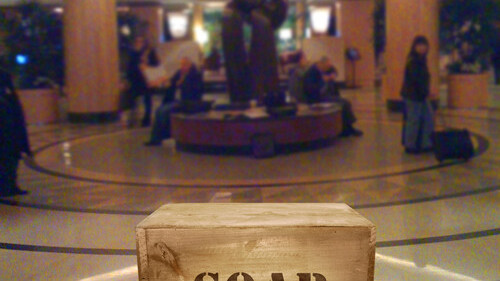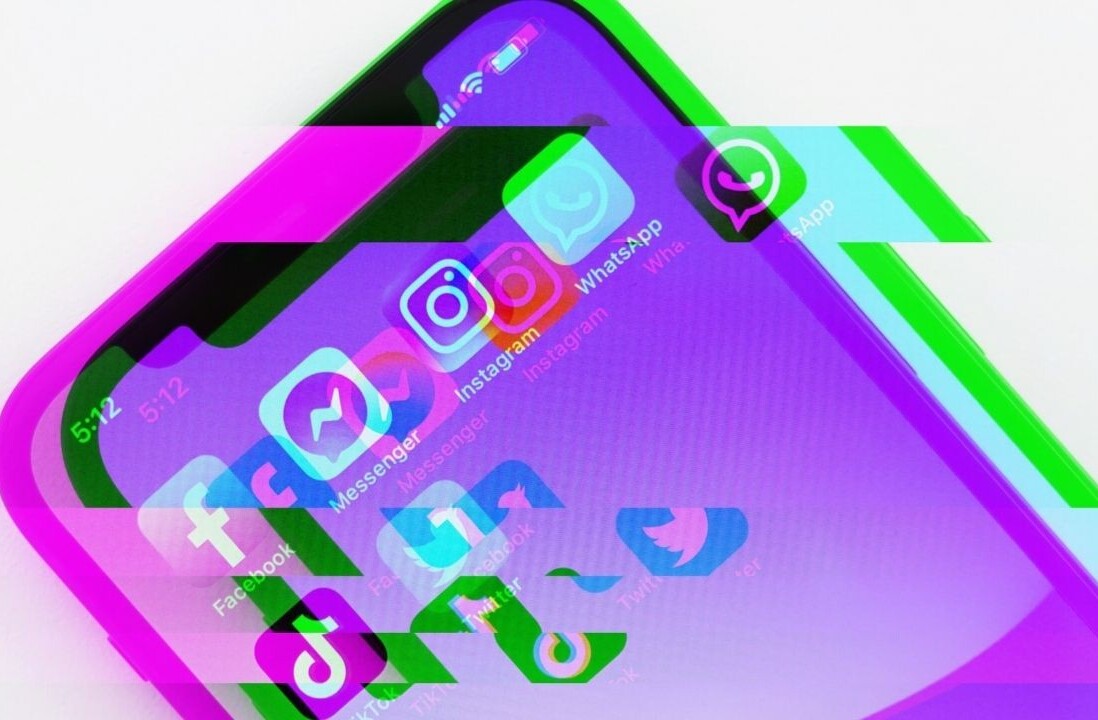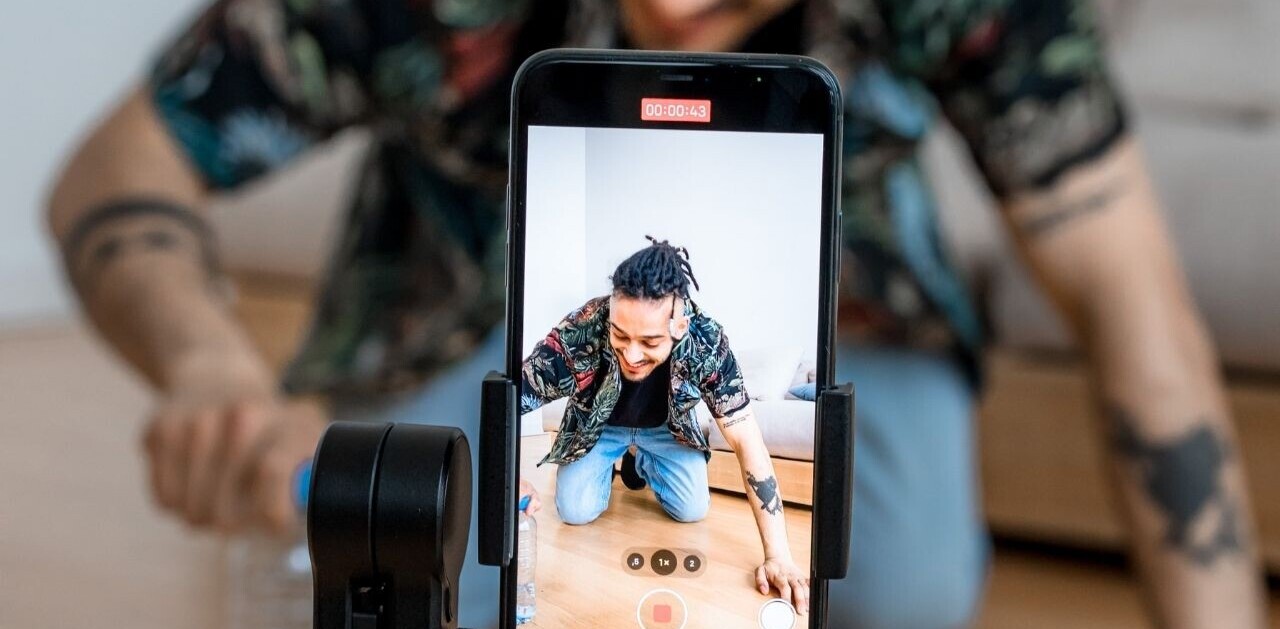
 Surely, by now, you’ve heard about the Leo Laporte rant over his missing Google Buzz activity. It’s just the latest in a long line of similar stories, but it brings up some deeper issues that I can’t seem to find addressed elsewhere.
Surely, by now, you’ve heard about the Leo Laporte rant over his missing Google Buzz activity. It’s just the latest in a long line of similar stories, but it brings up some deeper issues that I can’t seem to find addressed elsewhere.
That said, I’ll be today’s soapbox star and we’ll see how this turns out.
You see, there seem to be a few major complaints about social media outlets, but they all boil down to a simple fact: Social media is the tofu of the Internet. It is whatever you want it to be.
It’s Not A Megaphone
 Sure it is. Stop fooling yourself. If it wasn’t, then companies wouldn’t continue in droves to use it as one. Granted, it’s probably not the most effective use of the various platforms, but it certainly is a use of them.
Sure it is. Stop fooling yourself. If it wasn’t, then companies wouldn’t continue in droves to use it as one. Granted, it’s probably not the most effective use of the various platforms, but it certainly is a use of them.
I wrote on my personal site (which I won’t link, but you can find easily via Google) about the transactional nature of Twitter versus the relationship nature of Facebook. It’s easier to connect long term over Facebook and it’s easier to have sticky, lasting conversations there as well. But Twitter is like a gigantic megaphone with a readily-accessible talk button.
While some companies (Groupon immediately comes to mind) manage to walk the fine line between relationships and transactions very well, many more seem to believe that social media simply shouldn’t be ever used as an announcement platform.
The problem, however, is that it’s the users who make that decision. The people who choose to follow a Twitter, Facebook, Buzz, etc. account will dictate the level of interaction that it can have. If your users aren’t engaged (and make no mistake that some people simply don’t want to be engaged) then it will be a megaphone. If they are, then it will be a roundtable.
It Keeps Changing
 Yes. Welcome to reality. Social media, by the very nature of how it operates, is semantic. It will change and mold to the things that give it meaning. Facebook started as a college website and has now become one of the world’s largest gaming platforms. It did so because that’s what people wanted. They gave Facebook a new definition and the site changed accordingly.
Yes. Welcome to reality. Social media, by the very nature of how it operates, is semantic. It will change and mold to the things that give it meaning. Facebook started as a college website and has now become one of the world’s largest gaming platforms. It did so because that’s what people wanted. They gave Facebook a new definition and the site changed accordingly.
In another rant, Robert Scoble waxes non-poetic about things that he sees to be problems on FriendFeed. You see, Scoble liked FriendFeed in its early days because he gleaned information from it. However, the very thing that Scoble loved was exactly what made me walk away from the site. When that early-adopter-we’re-so-cool-it-hurts mentality started to wear off, Scoble lost interest:
“I didn’t see any geeks. I didn’t see any tech. I didn’t see anything that was teaching me anything. I had stopped getting much value out of FriendFeed.”
Over time, FriendFeed had changed. Some of the early adopter crowd left, still others remained but found the site to be a better engagement platform than announcement/discussion platform. As that change happened, I was glad to see that the site became more useful for me personally. I’ve now come back to it as a primary source of online conversation among people to whom I’m not related.
Scoble’s beef against FriendFeed seems to orbit around the idea that no experts are left, and so the only people who make comments are the slack-jawed mouth-breathers of the world that you’d generally find in the discussion section on YouTube. Personally, I couldn’t disagree more. But if you don’t like seeing someone, you could always block them.
People Aren’t Listening
 If that is the case, then maybe you need to change what you’re saying. Or, assuming you’re saying things that people should hear, maybe you need to say it differently.
If that is the case, then maybe you need to change what you’re saying. Or, assuming you’re saying things that people should hear, maybe you need to say it differently.
This was Leporte’s issue. His Google Buzz feed apparently had caught a bug and wasn’t updating. For days, he’d send out information, but it took him 2 weeks to figure out that nobody was seeing it. How could that be?
It seems clear to me (and I might very well be wrong here, as I stopped following Laporte some time ago due to some personal feelings) that he can’t possibly be interacting with his “friends” very much if it took him that long to figure out that nobody else was talking. By the very nature of what he does for a living, he should have been acutely aware of the “echo chamber” he claims to have been in.
I have no doubt that Laporte was putting out quality content. But when you are a content source, interaction will drop. I’m not certain if anyone has proven my theory about this yet, but it’s easy enough to see real world examples. People depended on Laporte to feed content, but that doesn’t mean that they were engaged enough to realize that he was gone.
The Means to an End
This is the single most important thing that I think people forget about what social media is: It is, simply, a means to an end. Whether you’re wanting to engage, broadcast, entertain or be entertained, it can do all of these things. How you choose to use it will dictate what you get out of it.
Let me say, to close, that I’m not attempting to bash Laporte or Scoble. Both of them, in their own rights, do amazing work. I am, however, bashing their arguments against the platforms…but I’m also bashing yours if you happen to agree with them, so it’s fair play.
So get out there, sign up for every site you feel like using and find out what you like and dislike about them. You don’t have to like every one of them. We’re all aware; there are stinking piles of fail in the clusters of social media and social networking sites. When you do find ones that you enjoy, use them how you want to use them and don’t let people tell you otherwise. It’s your time, so spend it how you choose.
Get the TNW newsletter
Get the most important tech news in your inbox each week.




